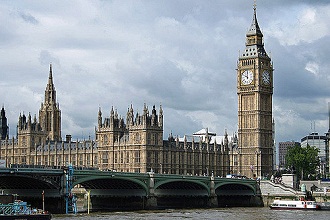Repeal Bill Will Remove the Right to Sue Government
Repeal Bill Will Remove the Right to Sue Government

A clause in the Brexit bill which is due to be debated in September could see British people lose the right to seek compensation or damages over issues including employees’ rights and business regulation.
Since a European Court ruling in 1991, also known as the Francovich ruling, citizens have been able to sue their respective governments for damages if their rights were infringed by the “sufficiently serious” failure of a country to implement EU law. But British ministers are reportedly set to debate a clause in the bill that will call for there to be “no right in domestic law on or after exit day to damages in accordance with the rule in Francovich.”
As the law stands now, the government is potentially liable to pay compensation to those affected for failing to implement the directive. The Francovich ruling has been used successfully a number of times to sue the British government.
Legal experts say the clause could mean the government avoiding liability for past breaches of EU law, when it was a member of the bloc.
Ministers have issued a statement which says individuals would retain the ability to receive damages or compensation for losses caused by breaching the law, but did not explain how this could still be done.
‘A chilling clause buried deep in small print’
Martha Spurrier, the director of human rights group Liberty, said: “This chilling clause, buried deep in the bill’s small print, would quietly take away one of the British people’s most vital tools for defending their rights . . . Putting the Government above the law renders our legal protections meaningless. It exposes a clear agenda to water down our rights after Brexit – and shows exactly why the Human Rights Act is going to be all the more essential after we leave.”
She added:
“We need more than words – we need a formal commitment in the Repeal bill, in the black and white letter of the law, that the British people will not leave the EU with fewer rights than we have now.”
A spokesperson for the Department for Exiting for the EU said:
“The UK has a longstanding tradition of ensuring our rights and liberties are protected. The right to Francovich damages is linked to EU membership. The government, therefore, considers that this will no longer be relevant after we leave. After exit, under UK law it will still be possible for individuals to receive damages or compensation for any losses caused by breach of the law.”
Chris Leslie, a Remain campaigner and former Labour frontbencher, vowed to challenge the government in Parliament for going back on its pledge not to take away citizens’ rights.
New extradition powers for British judges
British judges will be able to block extradition requests by EU nations after Brexit. Brexit Secretary David Davis has said that the Supreme Court will act as the final body of appeal for British citizens facing extradition under the European Arrest Warrant instead of EU courts. The approach is intended to address the concerns of eurosceptic Tory MPs who believe that retaining the European Arrest Warrant will mean British citizens being extradited and forced to face what some say are “sub-standard” judicial systems in other European countries.
Guy Verhofstadt, the European Parliament’s chief Brexit negotiator, said:
“We seek a close relationship with the UK after Brexit particularly on Justice and security matters. Criminals and terrorists must not be the beneficiaries of Brexit . . . However we are also determined that the legal order of the European Union is respected. The European Arrest Warrant is an instrument of European Union law and will therefore continue to be overseen by the European Court of Justice.”
Contact our legal experts today
For expert advice on steering your organisation through Brexit, employment law for businesses and other organisations, and international legal services please contact our solicitors today on 03456 381381 or email enquiries@ibblaw.co.uk.
